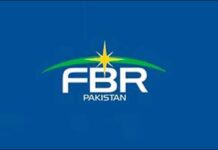
ISLAMABAD: In proposals sent to the International Monetary Fund (IMF), the government has told it may levy federal excise duty (FED) on imported and domestically manufactured vehicles.
The Washington-based lender has been told by the government that it will raise the sales tax on petroleum products besides hiking petroleum development levy rates.
According to a report in Express Tribune, with a blend of new taxes and rupee devaluation, the tax collection could increase to Rs4.5 trillion during the current financial year, Rs5.8 trillion by June 2020 and Rs7 trillion by June 2020, respectively.
Also, imported and domestically manufactured vehicles may be levied with federal excise duty and likewise withholding tax rates on non-filers and on imports of finished goods will be massively jacked up.
And the government has pinned its hope on recovering Rs75 billion which are presently stuck up in courts and the apex court has constituted a special bench to hear tax-related cases.
Non-tax revenue collection target has been suggested to be raised to Rs1.2 trillion straddling from the sale proceeds of divesting of two power plants and sale of 3G and 4G licences by the Pakistan Telecommunication Authority (PTA).
Moreover, it has apprised the IMF that current expenditures on account of these subjects which have been transferred to the provinces will be slowly decreased.
And it has suggested the IMF, it will raise tax revenues by 3% of GDP to 18.1% by 2021-22 and FBR’s tax collection from 11.2% to 13.9% in three years’ time.
According to sources, this would be a herculean task since this would need major tax efforts, especially in next financial year when Pakistan would require amassing more than Rs5.7 million in taxes.
As opposed to the raising of tax revenues, it has been suggested to cut expenditures from 17.4% of the overall size of the economy to 16.5% in three years’ time.
Public-Sector Development Programme spending would be greatly reduced from 4.2% of the GDP last year to 3.5% by the time the IMF programme concludes.
In real terms, the PSDP spending would work out to not more than Rs850 billion even after a duration of four years.
And defence expenditures are forecast to shoot from Rs1.1 trillion this year to Rs1.7 trillion till June 2022.
Interest payments are set to reach Rs2 trillion by June 2019 and touch Rs3.5 trillion by June 2022 hence the public development spending is going to be reduced.
Regarding monetary and exchange policies, the government has suggested its willingness to further devalue the rupee in the present financial year, which would help in raking additional revenue collection at the import stage.
The devaluation of the rupee against the dollar will be akin to the one made in October. And interest rate will be further changed in the forthcoming monetary policy announcement at end of January.
This hike could be in the range of 50 to 100 basis points over the existing rate of 10%, said sources.
These steps would enable to bolster forex reserves to about 2.5 months of import cover or $13 billion by end of current FY19.
However, this will impact the economic growth rate, which will nosedive to 3.9% in FY19 from over a decade high of 5.8% in FY18.
The agriculture sector will be dented and grow by a meagre 1.5%, industrial sector 4.5% and services sector by 4.4%.
And there will be a stipulation to request four commercial banks, out of which two belong to the private sector for meeting minimum capital requirements.
The State Bank of Pakistan (SBP) will establish a national financial stability council.
In response to the free float exchange rate demand by the IMF, the central bank has suggested following a flexible exchange rate policy.
The central bank has told the IMF that it would only be aiming for inflation and economic growth rate won’t be a major consideration.
Also, limitations would be enforced on the federal government from borrowing from the central bank.
Assurances have been given by SBP that it will remove limitations on advance import payments against letters of credit (LCs) and other administrative measures taken in past few months to rein in pressure on the balance of payments.
The sources shared that constituting part of the independence of the central bank, the tenure of the SBP governor could be increased from three to five years.
A new guideline for the selection of SBP governor, deputy governors and the Monetary Policy Committee members will be created.






